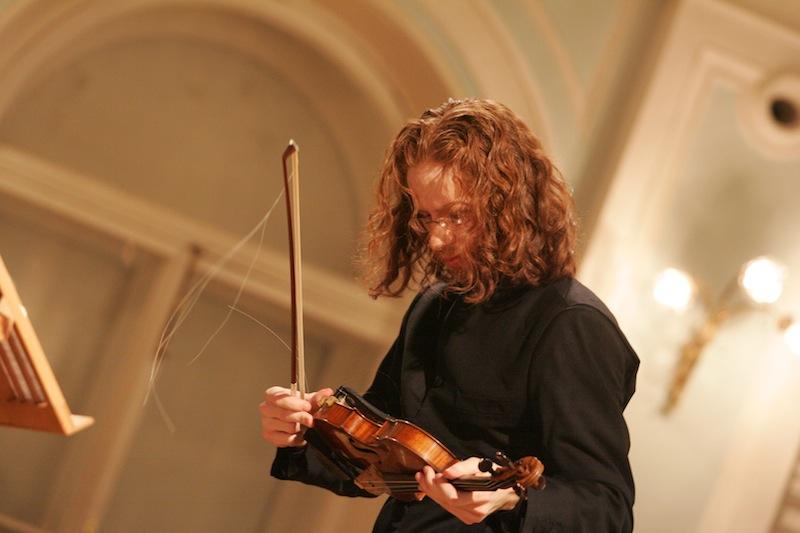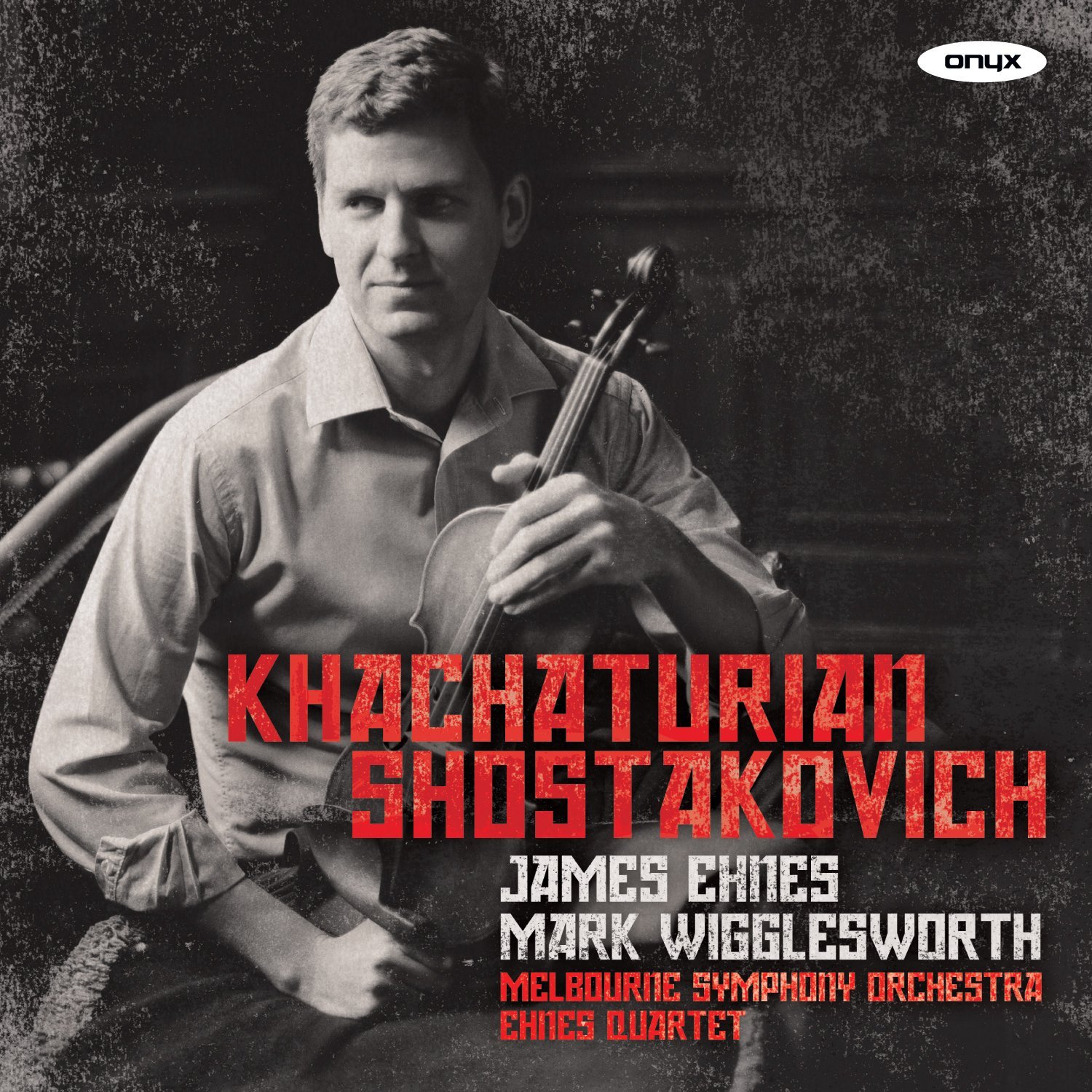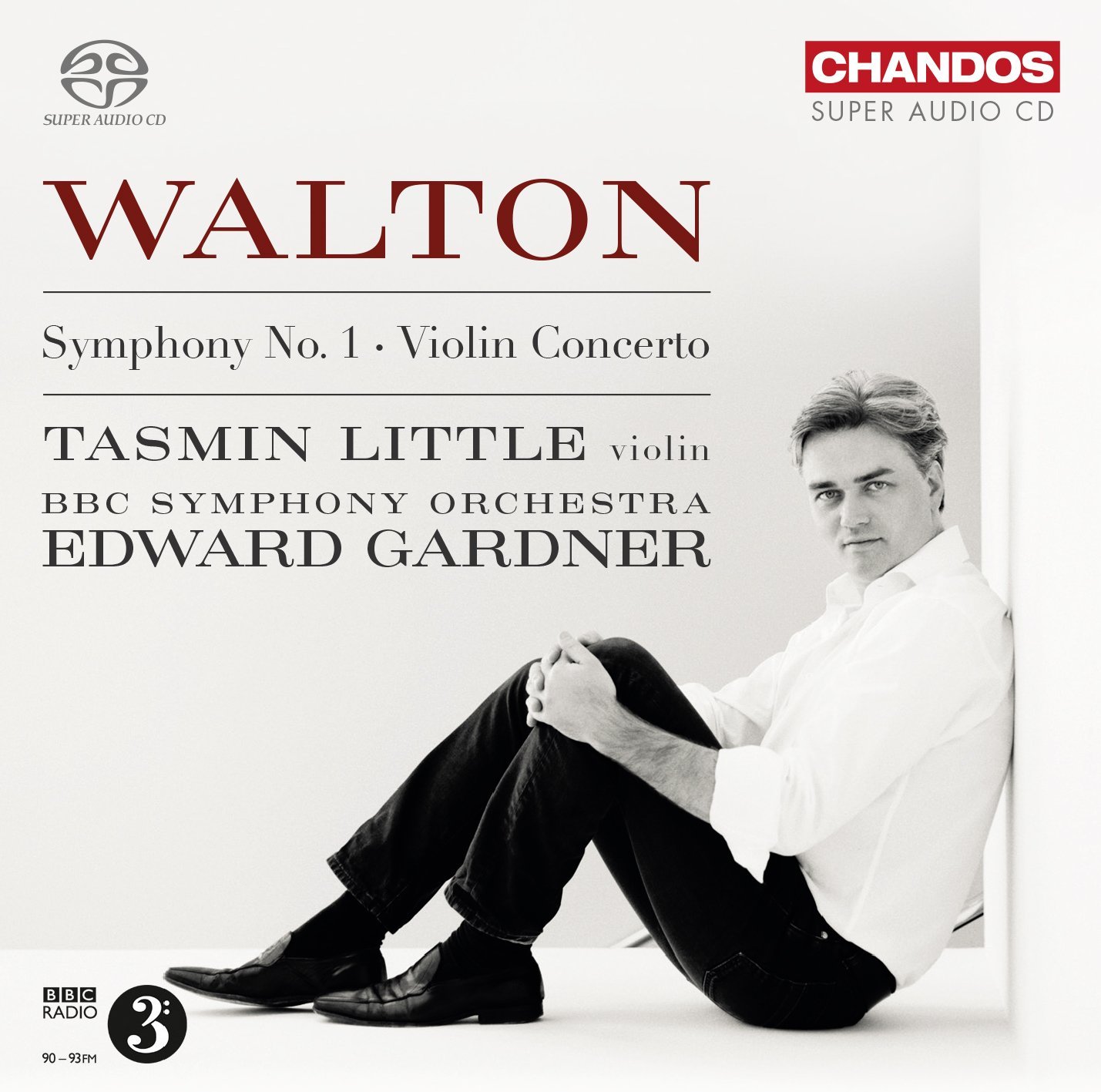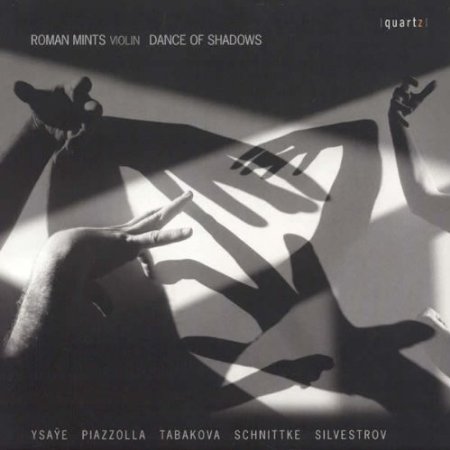Classical CDs Weekly: Khachaturian, Shostakovich, Walton, Roman Mints | reviews, news & interviews
Classical CDs Weekly: Khachaturian, Shostakovich, Walton, Roman Mints
Classical CDs Weekly: Khachaturian, Shostakovich, Walton, Roman Mints
A Soviet violin concerto, a British symphony and an acoustically adventurous solo recital


Moving from Khachaturian's breezy circus music to two of Shostakovich's darker quartets is quite a journey; you're best programming a generous pause halfway through this CD. The Khachaturian, composed for David Oistrakh in 1940, is a blast, its raucous optimism totally out of step with its time. James Ehnes's total lack of inhibition is just what the work deserves, and this full-blooded performance is glorious. Ehnes can change mood with mercurial ease, the first movement's blustering cast aside when he reaches Khachaturian's glorious second subject. He's aided by a delicious oboe solo. As guilty pleasures go, this is up with the best of them. The Andante sostenuto's Armenian folk influences are deftly handled, and there's an irritatingly catchy last movement. Mark Wigglesworth's Melbourne Symphony Orchestra play as if possessed. Approach this music with an open mind and you'll be dazzled and beguiled. Then go and purchase the composer's vintage Decca recording of his suites from the ballets Spartacus and Gayaneh with the Vienna Philharmonic – a real desert island disc.
Ehnes's own string quartet provide the couplings. Shostakovich's String Quartet no 7 is an underrated, poignant gem – a compact work dedicated to the memory of his first wife. The time span may be brief, but this feels like a much bigger work - a haunting, accessible statement. There's a vivid sense of loss, of bittersweet nostalgia, but the sentiment is never laid on with a trowel. The violence of the finale is a real shock in these players' hands, making the elegiac close more touching. The Eighth Quartet is more familiar – the opening paragraph given a welcome touch of warmth and humanity, the faster, sections dispatched with steely, reckless abandon. Fabulous, deep-toned cello playing from Robert deMaine adds to the impact of an earthy, profound performance.
Could this be the one, the Holy Grail for Walton fans? A new recording of his Symphony no 1 that measures up to André Previn's famous LSO version, taped in 1966 and still sounding fresh? Previn's disc remains a remarkable artefact, the only account of this uneven work which will make you believe it's a masterpiece. The symphony's detractors have plenty to get their teeth into – the shameless borrowings from Sibelius, the crudeness of expression, the macho posturing. But, performed with conviction, it can be a thrilling experience. Edward Gardner's swift tempi bode well, and he's blessed with razor-sharp orchestral playing. He guides us through the first movement's guilty pleasures as well as anyone, and doesn't peak too soon, making the brassy pile up before the recapitulation suitably savage. The ensuing duel between tuba and low horns is terrific. Gardner's scherzo is exciting and witty, though lacking the last degree of menace.
The slow movement is beautifully done – sensuous, delicate, looking forward to Walton's post-war output. If the piece had stopped at three movements, you'd be happy. But that uneven finale – boasting too many ideas, its grandiloquent climax failing to resolve what's gone on before, invariably leaves me wanting. Previn's is the only recording that has convinced me otherwise. I'm being picky – Chandos's sound is rich, full-bodied, and there's a generous coupling. Walton's Violin Concerto is an entertaining work – soloist Tasmin Little is on good form, particularly in the first movement's mercurial central section. Alas, I've been spoiled by too many recent recordings of Britten's concerto, and the Walton doesn't carry the same emotional charge. The closing minutes of the finale are beautifully done, though - Little's smouldering cadenza interrupted by the perkiest of codas. 
Don't read Roman Mints' lucid sleeve notes before listening to this disc. His account of Ysaÿe's Sonata no 2 has all the panache and eloquence you'd hope for. Experience it through headphones, and you're quickly made aware that something peculiar's going on – the quotations from Bach seemingly in a different acoustic, and changing position on each reappearance. It's a startling effect. We're saturated with new recordings of familiar works, most available at the click of a mouse. Mints argues that it's only worth taping anything new if you've a genuinely original slant. The theme from Bach's Partita no 3 intrudes on Ysaÿe's first movement like a hallucination; hearing it move around the soundstage is an engaging, highly musical effect. The same technique is repeated in Schnittke's A Paganini. At times it's as if you're hearing a duet, and it's a shock to remember that it's another work written for solo violin.
Sound engineer Maria Soboleva receives due credit in the notes, and elsewhere it's clear that she's worked hard to find the right microphone placing for each piece. Astor Piazzola's Tango - Étude no 2 is recorded in extreme close up, but the effect is never claustrophobic. In Dobrinka Tabakova's Spinning a Yarn, Mints's violin is overdubbed with him playing the kolesna lira, a Russian variant of the hurdy-gurdy. It makes a wonderfully pungent sound. The recital closes with Valentin Silvestrov's Postlude, Mints suitably distant and veiled. A fascinating collection.
Explore topics
Share this article
The future of Arts Journalism
You can stop theartsdesk.com closing!
We urgently need financing to survive. Our fundraising drive has thus far raised £49,000 but we need to reach £100,000 or we will be forced to close. Please contribute here: https://gofund.me/c3f6033d
And if you can forward this information to anyone who might assist, we’d be grateful.

Subscribe to theartsdesk.com
Thank you for continuing to read our work on theartsdesk.com. For unlimited access to every article in its entirety, including our archive of more than 15,000 pieces, we're asking for £5 per month or £40 per year. We feel it's a very good deal, and hope you do too.
To take a subscription now simply click here.
And if you're looking for that extra gift for a friend or family member, why not treat them to a theartsdesk.com gift subscription?
more Classical music
 Bizet in 150th anniversary year: rich and rare French offerings from Palazzetto Bru Zane
Specialists in French romantic music unveil a treasure trove both live and on disc
Bizet in 150th anniversary year: rich and rare French offerings from Palazzetto Bru Zane
Specialists in French romantic music unveil a treasure trove both live and on disc
 Scottish Chamber Orchestra, Ibragimova, Queen’s Hall, Edinburgh review - rarities, novelties and drumrolls
A pity the SCO didn't pick a better showcase for a shining guest artist
Scottish Chamber Orchestra, Ibragimova, Queen’s Hall, Edinburgh review - rarities, novelties and drumrolls
A pity the SCO didn't pick a better showcase for a shining guest artist
 Kilsby, Parkes, Sinfonia of London, Wilson, Barbican review - string things zing and sing in expert hands
British masterpieces for strings plus other-worldly tenor and horn - and a muscular rarity
Kilsby, Parkes, Sinfonia of London, Wilson, Barbican review - string things zing and sing in expert hands
British masterpieces for strings plus other-worldly tenor and horn - and a muscular rarity
 From Historical to Hip-Hop, Classically Black Music Festival, Kings Place review - a cluster of impressive stars for the future
From quasi-Mozartian elegance to the gritty humour of a kitchen inspection
From Historical to Hip-Hop, Classically Black Music Festival, Kings Place review - a cluster of impressive stars for the future
From quasi-Mozartian elegance to the gritty humour of a kitchen inspection
 Shibe, LSO, Adès, Barbican review - gaudy and glorious new music alongside serene Sibelius
Adès’s passion makes persuasive case for the music he loves, both new and old
Shibe, LSO, Adès, Barbican review - gaudy and glorious new music alongside serene Sibelius
Adès’s passion makes persuasive case for the music he loves, both new and old
 Anja Mittermüller, Richard Fu, Wigmore Hall review - a glorious hall debut
The Austrian mezzo shines - at the age of 22
Anja Mittermüller, Richard Fu, Wigmore Hall review - a glorious hall debut
The Austrian mezzo shines - at the age of 22
 First Person: clarinettist Oliver Pashley on the new horizons of The Hermes Experiment's latest album
Compositions by members of this unusual quartet feature for the first time
First Person: clarinettist Oliver Pashley on the new horizons of The Hermes Experiment's latest album
Compositions by members of this unusual quartet feature for the first time
 Gesualdo Passione, Les Arts Florissants, Amala Dior Company, Barbican review - inspired collaboration excavates the music's humanity
At times it was like watching an anarchic religious procession
Gesualdo Passione, Les Arts Florissants, Amala Dior Company, Barbican review - inspired collaboration excavates the music's humanity
At times it was like watching an anarchic religious procession
 Classical CDs: Camels, concrete and cabaret
An influential American composer's 90th birthday box, plus British piano concertos and a father-and-son duo
Classical CDs: Camels, concrete and cabaret
An influential American composer's 90th birthday box, plus British piano concertos and a father-and-son duo
 Cockerham, Manchester Camerata, Sheen, Martin Harris Centre, Manchester review - re-enacting the dawn of modernism
Two UK premieres added to three miniatures from a seminal event of January 1914
Cockerham, Manchester Camerata, Sheen, Martin Harris Centre, Manchester review - re-enacting the dawn of modernism
Two UK premieres added to three miniatures from a seminal event of January 1914
 Kempf, Brno Philharmonic, Davies, Bridgewater Hall, Manchester review - European tradition meets American jazz
Bouncing Czechs enjoy their Gershwin and Brubeck alongside Janáček and Dvořák
Kempf, Brno Philharmonic, Davies, Bridgewater Hall, Manchester review - European tradition meets American jazz
Bouncing Czechs enjoy their Gershwin and Brubeck alongside Janáček and Dvořák
 Solomon, OAE, Butt, QEH review - daft Biblical whitewashing with great choruses
Even a top soprano and mezzo can’t make this Handel paean wholly convincing
Solomon, OAE, Butt, QEH review - daft Biblical whitewashing with great choruses
Even a top soprano and mezzo can’t make this Handel paean wholly convincing

Add comment